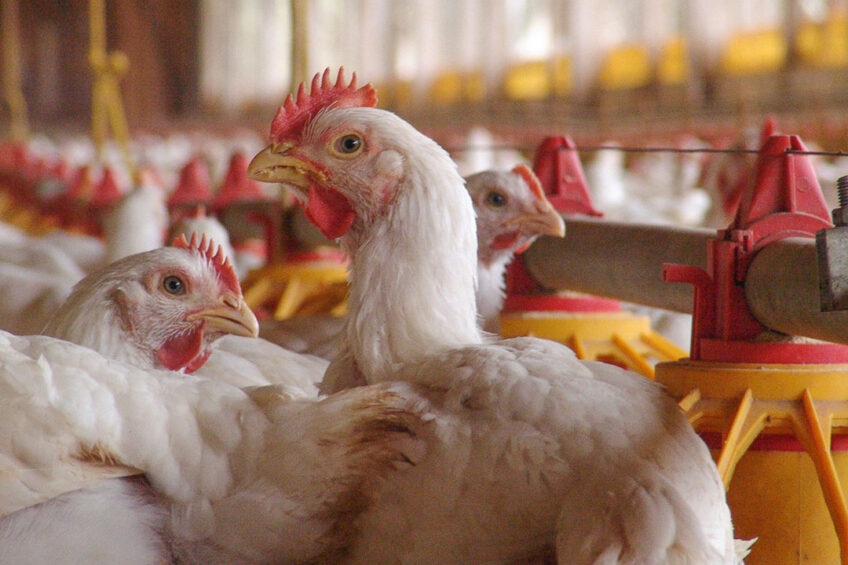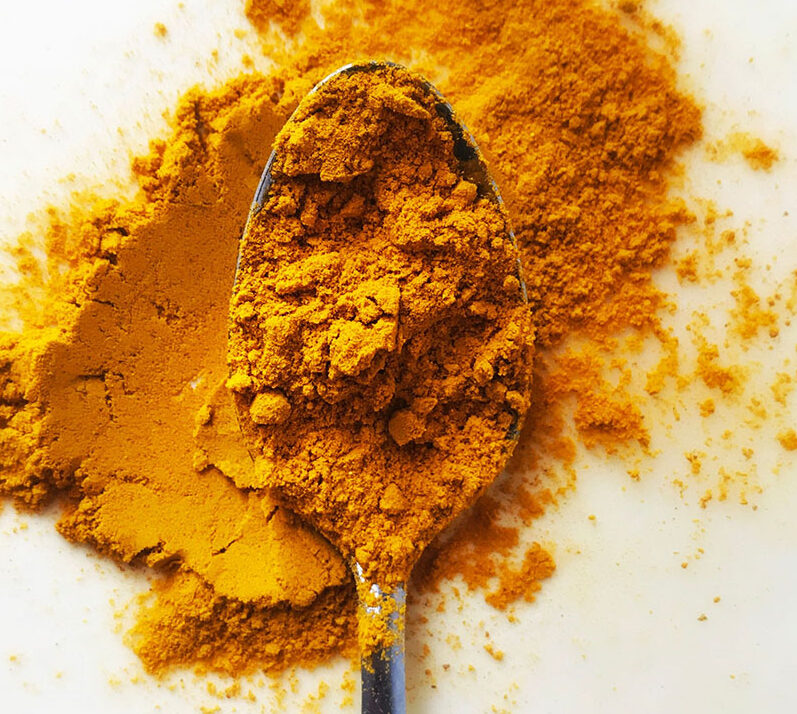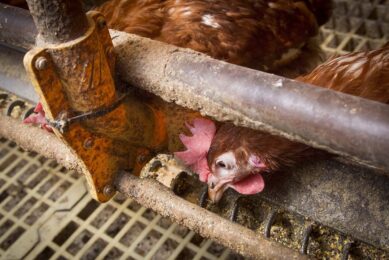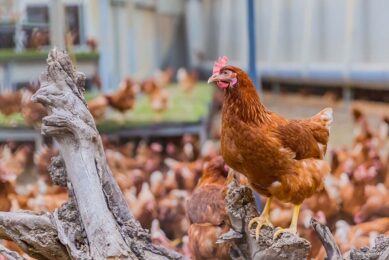Impact of dietary turmeric on poultry performance

The application of medicinal plants and herbs with antibacterial and antifungal effects in livestock diets promotes health and welfare. This article considers the impact of dietary turmeric supplementation on poultry.
Turmeric (Curcuma longa) is a tropical medicinal plant with antifungal, immunomodulatory, antioxidative, and antimutagenic effects due to its active components such as curcumin, demethoxycurcumin, and bis-demethoxycurcumin.
Impact on growth and production performance
Research studies have shown that supplementation of turmeric to Ross broiler rations significantly improved the final body weight at 42 days. Plus, the addition of turmeric to the Cobb broiler’s low protein diet improved weight gain, feed conversion ratio, and dressing percentage.
FCR / Feed intake / Digestibility
The addition of turmeric at 2 g/kg showed the best feed conversion ratio, while supplementing 10g/kg of turmeric led to a significant improvement in broiler feed intake. In addition, turmeric improved the digestibility of dry matter, crude fat, protein, and nitrogen retention.
In starter/finisher rations
Another study determined that adding 7 g/kg of turmeric powder to the starter and finisher rations of broilers improved body weight and weight gain, as well as feed conversion ratio, and reduced feed intake.
Pathogen prevention in broilers
The antimicrobial characteristics of turmeric prevent broiler pathogens, thus enhancing body weight gain. Supplementing turmeric rhizome extract during 2 to 12 weeks of age in Wenchang broilers improved final body weight at 12 weeks. However, adding 300 mg/kg turmeric to broiler diets decreased feed intake during the period of 2 to 12 weeks. Adding a mixture of red ginger and turmeric to broiler diets reduced protein consumption, increased body weight gain, and improved protein conversion and meat protein conversion.
In broiler drinking water
Adding cinnamon, thyme, and turmeric infusions to broiler drinking water decreased protein consumption, increased body weight gain, and improved protein conversion and meat protein conversion, enhancing production performance.
In layer diets
The addition of turmeric powder to layer hens’ diets in the second production cycle for 4 weeks decreased feed intake, improved feed conversion, enhanced egg number, egg weight, egg mass, and shell weight, and decreased albumin weight.

Impact on carcass traits
Decrease in fat levels
Dietary supplementation of turmeric decreased broiler meat cholesterol, separable fat level, water holding capacity, pH, and tenderness. In addition, broiler rations supplemented with 0.2% prebiotic, 0.1% garlic, and 0.1% turmeric powder decreased abdominal fat of broilers.
Weight of liver, heart & gizzard
Using turmeric powder in broiler ration increased carcass characteristics such as average weight of liver, heart, and gizzard. Furthermore, in broilers fed turmeric-supplemented diets there was a substantial decrease in abdominal fat pad and a significant rise in dressing percentage.
Breast muscle weight
Supplementation of 100, 200, 300 mg/kg turmeric rhizome extract to the Wenchang chicken ration increased breast muscle weight while decreasing abdominal fat percentage.
In drinking water
Replacing drinking water with cinnamon, thyme, and turmeric infusions improved the relative weight of carcass, heart, liver, pancreas, bursa, and abdominal fat, but gizzard and proventiculus were significantly heavier with the thyme treatment than with others.
Impact on blood factors
Supplementation of turmeric powder to the diet of layer hens decreased triglycerides, total cholesterol, LDL-cholesterol, and increased HDL-cholesterol. The addition of 0.5 g turmeric powder to the diet reduced alanine aminotransferase activity in broilers. Supplementing turmeric rhizome powder decreased serum chloride and the overall electrolyte balance.
Turmeric powder in the broiler ration affected serum glucose concentration, serum albumin concentration, serum globulin concentration, blood urea nitrogen, serum total bilirubin concentration, serum alanine aminotransferase activity, and serum lactic dehydrogenase concentration activity. In addition, adding 1% turmeric led to a significant decrease in packed cell volume, haemoglobin, red blood cell, white blood cell, and packed cell volume.
Turmeric rhizome extract enhanced superoxide dismutase and glutathione peroxidase enzyme activities and decreased malondialdehyde levels. Turmeric as a feed supplement enhanced the number of heterophil and basophil cells and modulated the immune system against avian influenza vaccination in layer hens. Interestingly, replacing drinking water with cinnamon, thyme, and turmeric infusions increased antibody titre and improved the immune response to the Newcastle disease vaccine.
In heat-stressed broilers, adding 0.5% turmeric to diets decreased haemoglobin, packed cell volume, albumin, serum T3 and T4, red blood cell, and total protein, whereas it increased triglycerides, uric acid, cholesterol, aspartate aminotransferase, alanine transaminase, LDL-cholesterol, alkaline phosphatase, bilirubin, and creatinine.
Concluding remarks
Supplementing turmeric to poultry diet enhances growth and production performance, improves gut health, modulates immunity, and has varied impacts on carcass traits, blood parameter and egg quality traits. Further research is required to find the optimal dose of turmeric in poultry diets.
 Beheer
Beheer











 WP Admin
WP Admin  Bewerk bericht
Bewerk bericht